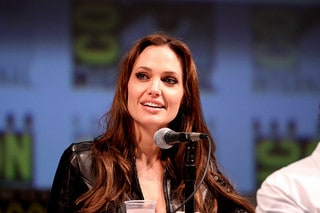Recently, Angelina Jolie published an op-ed in the New York Times disclosing her decision to undergo a double mastectomy. The procedure began on Feb. 2 of this year and finished in April. Her own mother died from breast cancer at 56, and just yesterday her aunt died from the same disease. Knowing that she was at high risk for both breast and ovarian cancers, Jolie took actions that she hopes will allow her to be with her children for as long as she can.
[Mother] held out long enough to meet the first of her grandchildren and to hold them in her arms. But my other children will never have the chance to know her and experience how loving and gracious she was. We often speak of “Mommy’s mommy,” and I find myself trying to explain the illness that took her away from us.
Jolie’s decision to publicize her operation surprised many, partly because she managed to escape the notice of the media and maintained a period of privacy to deal with this sensitive matter. Now, the world-renowned actress has shared the news not to shine the spotlight on herself, but to bring to light a story that she hopes will save many women who are at risk for cancer, especially women who carry a similar and rare defective gene (BRCA2) that she does.
I am writing about it now because I hope that other women can benefit from my experience. Cancer is still a word that strikes fear into people’s hearts, producing a deep sense of powerlessness. But today it is possible to find out through a blood test whether you are highly susceptible to breast and ovarian cancer, and then take action.
To have the mastectomy was clearly not an easy choice for Jolie, and it was one that Brad Pitt and many others called “heroic.” But is this an accurate description of her line of action? Most parents would do all they could to be there for their children – but would they consider their actions “heroic?”
The fact is, not all parents have the means to do what Jolie did. And, no matter where we come down on the question of genetic testing and preemptive surgery, there is no question that Jolie has shown love for her children – and for many she will never meet – in sharing this struggle that she had long kept hidden. Eager to safeguard others’ safety and quality of life, she reminds us in her op-ed of the pressing need to provide affordable healthcare services for people in need:
Breast cancer alone kills some 458,000 people each year, according to the World Health Organization, mainly in low- and middle-income countries. It has got to be a priority to ensure that more women can access gene testing and lifesaving preventive treatment, whatever their means and background, wherever they live. The cost of testing for BRCA1 and BRCA2, at more than $3,000 in the United States, remains an obstacle for many women.
For those women at very high risk for breast cancer – and for all of those interested in the treatment alternative Jolie presents – she will post the details of her journey at her new website.



